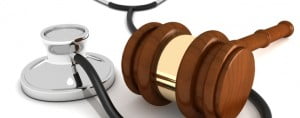
Freeganism is an increasingly popular practice that sees people eating discarded food – typically, items that have been thrown out by supermarkets or other large businesses. While many freegans are motivated by an anti-corporate, anti-consumerist agenda, others are interested in reducing their food bill, protecting the environment or eliminating waste.
As a result, many freegans take part in an activity called ‘skipping’ or ‘dumpster diving’, where they look through rubbish bins to find edible food. Many companies throw out perfectly-fine produce, including wrapped bananas, packaged food that has just passed its sell-by-date or items which have fallen on the floor and been swept up in regular cleaning.
Food poisoning is therefore a key consideration for many freegans. Some freegans follow a vegan lifestyle, which means they are significantly less likely to develop food poisoning than those who eat meat, although it is still possible to eat recovered meat providing that it has not spoiled.
So how can freegans avoid food poisoning? Here are a few tips. It is worth clarifying that freegans engage in dumpster diving at their own risk and I hold no responsibility for any personal injuries incurred by people who follow this advice.
Read More: How do Freegans Avoid Food Poisoning After Dumpster Diving?




